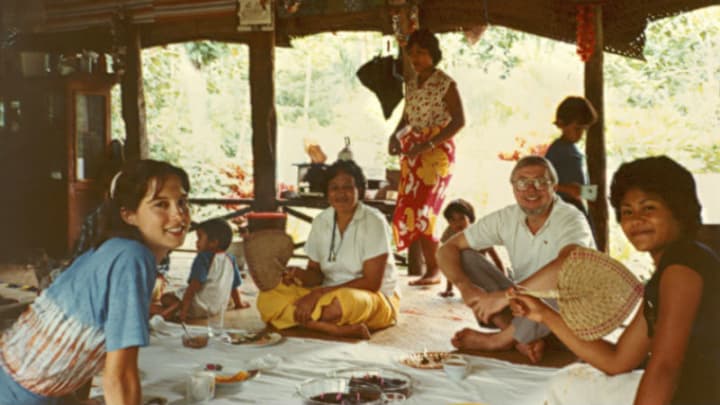
As our country experiences a reckoning with the pervasive nature of sexual harassment and assault, it is important to shine a spotlight on our development community. It is time we acknowledge that 86 percent of aid workers know a colleague who has experienced sexual violence associated with their work. In fact, it is past time.
Unfortunately I am on both sides of that alarming statistic.
We're investigating sexual violence in the aid industry
At Devex, we’re deepening our reporting on sexual violence in the aid industry. Here's what we're doing — and how to get in touch.
Read more Devex coverage of sexual harassment in the aid industry.
While I often tell the story of how my career in development and public health began as a Peace Corps volunteer, I remained silent for more than 30 years about my own sexual assault as a volunteer. I was 24, teaching in a secondary school in Western Samoa when the assault occurred.
After it happened, I was numb; I was scared; I feared no one would believe me and that I may be forced to leave my community and the work I so loved. I didn’t want to let my assailant steal my Peace Corps experience, so I buried the incident as deeply as I could and kept silent until I couldn’t anymore.
Two months after I was confirmed as the Peace Corps Deputy Director in 2010, six brave women came forward and shared their real and very painful stories of their sexual assaults as Peace Corps volunteers and how Peace Corps had failed to provide them with the training, care and support they needed and deserved.
Their stories clenched my heart and transported me back to my own assault, and I knew they were right. We had to do more.
And I also knew that if I was going to be an authentic leader of change I would not only have to confront my own painful sexual assault, I would also have to go public with it. I had to tell my husband, my children, my parents, my fellow volunteers, my friends and the Peace Corps community before I could lead an effort to bring reform to our agency.
That was the beginning of a long journey to create Peace Corps’ Risk Reduction and Response Program, which was formally launched in 2013. Peace Corps’ program consists of more than 30 policy changes, training for every single volunteer and staff person, the creation of an Office of Victim Advocacy, specialized training in trauma-informed care for first responders, the development of an anonymous hotline, and the creation of a Sexual Assault Advisory Council of our nation’s leading experts to guide the agency in its quest to continually improve its support for volunteers.
Knowing what I know now, I so wished I had come forward earlier. If I had spoken up 30 years ago, would others have come forward? If I had spoken up, would my assailant have attacked again? If I had spoken up, would others have been spared? If those courageous Peace Corps volunteers had not spoken up, would Peace Corps have made those reforms as quickly and intently as we did? I’d like to believe so, but I can’t be sure.
That is why #MeToo has struck such a chord around the world. It is finally giving women and men the courage and the opportunity to step forward, share their own painful experiences to bring healing in their lives, and to say this must stop.
Now taking #MeToo one step further, we need to say #AidToo, and draw a line in the sand that it is completely unacceptable for this to happen in our industry. At the heart of development is service to others, and the fact that almost 9 out of 10 of us know someone who has experienced sexual assault in our field means we are clearly not where we need to be.
We need to have a very real conversation in the global development community. We need to be leaders for zero tolerance of sexual assault and harassment, especially as so many of our programs are expressly designed for the empowerment of women and girls.
Right now I’m reading a book entitled “Dignity” by Donna Hicks. It reinforces the fact that respect is something we earn, but dignity is something we are all entitled to from the moment of birth. Sexual harassment and assault attacks one’s dignity and debilitates the survivor. The magnitude of the loss around the world is incalculable.
I applaud Devex for shining a light on this important subject, and my hope is #AidToo will be a rallying cry for our community to stand up for dignity. After all, we cannot expect the rest of the world to move the needle on sexual violence and other forms of oppression when it’s a journey we’re not willing to acknowledge and address ourselves.


